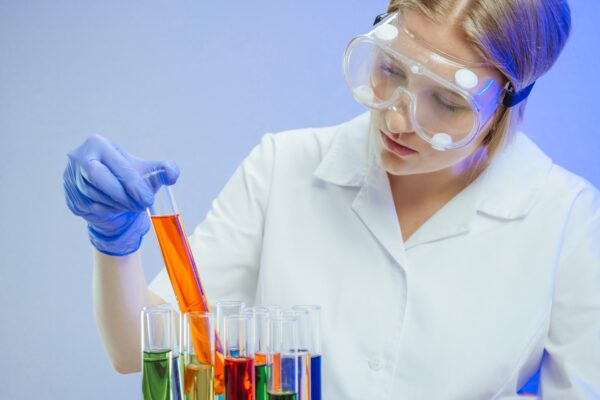In today’s fast-paced world, fatigue and low energy levels are common issues that many people face. One critical factor influencing energy levels is testosterone, a hormone that plays a vital role in maintaining overall health and well-being. Understanding the relationship between testosterone and energy levels can help in combating fatigue and boosting vitality effectively.
- Understanding Testosterone
- How to Combat Fatigue and Boost Vitality
- Conclusion
- FAQs: Testosterone and Energy Levels
- Question: How does testosterone affect energy levels?
- Question: What are the symptoms of low testosterone?
- Question: What causes low testosterone levels?
- Question: Can lifestyle changes help boost testosterone levels?
- Question: What medical interventions are available for low testosterone?
- Question: Are there natural supplements that can help increase testosterone levels?
- Question: What are the risks of testosterone replacement therapy?
Understanding Testosterone
Testosterone is a hormone primarily produced in the testes in men and the ovaries in women, although it is present in much lower levels in women. It is crucial for various bodily functions, including muscle mass development, bone density maintenance, and the regulation of libido. However, one of the lesser-known roles of testosterone is its impact on energy levels and overall vitality.
Causes of Low Testosterone Levels
Several factors can lead to low testosterone levels, which in turn can result in decreased energy and increased fatigue. Some common causes include:
- Aging: Testosterone levels naturally decline with age, starting around the age of 30.
- Medical Conditions: Conditions such as hypogonadism, type 2 diabetes, and obesity can negatively affect testosterone production.
- Lifestyle Factors: Poor diet, lack of exercise, excessive alcohol consumption, and stress can all contribute to reduced testosterone levels.
- Medications: Certain medications, such as opioids and steroids, can interfere with testosterone production.
Symptoms of Low Testosterone
Recognizing the symptoms of low testosterone is the first step in addressing the issue. Some common symptoms include:
- Persistent Fatigue: Feeling constantly tired despite adequate sleep.
- Decreased Libido: A noticeable decline in sexual desire.
- Muscle Weakness: Reduced muscle mass and strength.
- Mood Changes: Increased irritability, depression, or anxiety.
- Cognitive Difficulties: Problems with concentration and memory.
The Role of Testosterone in Energy Levels
Testosterone has a significant influence on energy metabolism. It helps regulate the production of red blood cells, which are essential for transporting oxygen throughout the body. Adequate oxygenation of tissues is crucial for maintaining energy levels and preventing fatigue. Moreover, testosterone influences the efficiency of mitochondria, the powerhouse of cells, in producing energy.
Testosterone boosts energy levels through several key mechanisms:
1. Red Blood Cell Production
Testosterone stimulates erythropoiesis, the production of red blood cells. More red blood cells mean better oxygen transport throughout the body, which enhances energy and endurance.
2. Metabolism Regulation
Testosterone plays a crucial role in regulating metabolism. It helps convert food into energy more efficiently, maintaining a healthy weight and providing sustained energy.
3. Muscle Mass and Strength
Increased testosterone levels lead to greater muscle mass and strength. More muscle mass can improve overall physical performance and reduce fatigue.
4. Mood and Motivation
Testosterone positively impacts mood and motivation. Higher levels are associated with improved mental clarity, reduced feelings of depression, and increased drive, all of which contribute to higher energy levels.
5. Fat Distribution
Testosterone helps in the distribution of fat in the body. Proper fat distribution can prevent excessive weight gain and associated fatigue.
By supporting these physiological processes, testosterone helps maintain higher energy levels and combats fatigue.
How to Combat Fatigue and Boost Vitality
Addressing low testosterone levels can significantly improve energy levels and overall vitality. Here are some effective strategies:
1. Lifestyle Changes
Exercise Regularly: Engaging in regular physical activity, particularly strength training, can help boost testosterone levels. Exercise promotes the release of endorphins, which enhance mood and energy.
Healthy Diet: A balanced diet rich in essential nutrients supports overall health and hormone production. Foods high in zinc, vitamin D, and healthy fats are particularly beneficial for testosterone levels.
Adequate Sleep: Quality sleep is crucial for hormone production, including testosterone. Aim for 7-8 hours of uninterrupted sleep per night.
Stress Management: Chronic stress leads to elevated cortisol levels, which can negatively impact testosterone production. Practice stress-reducing techniques such as meditation, yoga, or deep breathing exercises.
Kickstart Your Day: Morning Rituals to Boost Testosterone Levels Naturally
2. Medical Interventions
Testosterone Replacement Therapy (TRT): For individuals with significantly low testosterone levels, TRT can be an effective treatment. This therapy involves administering testosterone through injections, patches, gels, or pellets.
Medications: Certain medications can help stimulate the body’s natural testosterone production. Consult with a healthcare provider to explore these options.
Address Underlying Conditions: Managing medical conditions such as diabetes or obesity can improve testosterone levels and overall energy.
Elevate Your Transformation: 13 Male Testosterone-Boosting Habits for Growth
3. Natural Supplements
Zinc and Magnesium: These minerals are essential for testosterone production. Supplementing with zinc and magnesium can help increase testosterone levels naturally.
Vitamin D: Adequate vitamin D levels are crucial for hormone production. Spending time in sunlight or taking vitamin D supplements can be beneficial.
Herbal Supplements: Some herbs, such as ashwagandha and fenugreek, have been shown to support testosterone levels. However, consult with a healthcare provider before starting any new supplements.
11 Best Male Testosterone Boosters That May Improve Your Performance and Health
Conclusion
Maintaining optimal testosterone levels is key to combating fatigue and boosting vitality. By making lifestyle changes, seeking medical interventions, and considering natural supplements, individuals can improve their energy levels and overall well-being. Understanding the relationship between testosterone and energy is the first step towards a more vibrant and energetic life.
Testosterone and Longevity: Strategies for Promoting Healthspan and Lifespan
FAQs: Testosterone and Energy Levels
Question: How does testosterone affect energy levels?
Testosterone plays a crucial role in energy metabolism by influencing the production of red blood cells and the efficiency of mitochondria, which are essential for energy production and preventing fatigue.
Question: What are the symptoms of low testosterone?
Symptoms of low testosterone include persistent fatigue, decreased libido, muscle weakness, mood changes, and cognitive difficulties such as problems with concentration and memory.
Question: What causes low testosterone levels?
Low testosterone levels can be caused by aging, medical conditions like hypogonadism and diabetes, lifestyle factors such as poor diet and lack of exercise, and certain medications.
Question: Can lifestyle changes help boost testosterone levels?
Yes, regular exercise, a balanced diet, adequate sleep, and stress management can help boost testosterone levels and improve energy and overall vitality.
Question: What medical interventions are available for low testosterone?
Medical interventions include testosterone replacement therapy (TRT) and medications that stimulate natural testosterone production. These should be considered under medical supervision.
Question: Are there natural supplements that can help increase testosterone levels?
Yes, supplements such as zinc, magnesium, vitamin D, and certain herbal supplements like ashwagandha and fenugreek can help support healthy testosterone levels. Consult with a healthcare provider before starting any new supplements.
Question: What are the risks of testosterone replacement therapy?
TRT can have side effects, including an increased risk of cardiovascular issues, prostate enlargement, and sleep apnea. It is essential to evaluate the risks and benefits with a healthcare provider.
Testosterone and Recovery: Optimizing Healing and Rehabilitation Processes
Testosterone and Skin Health: Effects on Acne, Aging, and Overall Appearance





